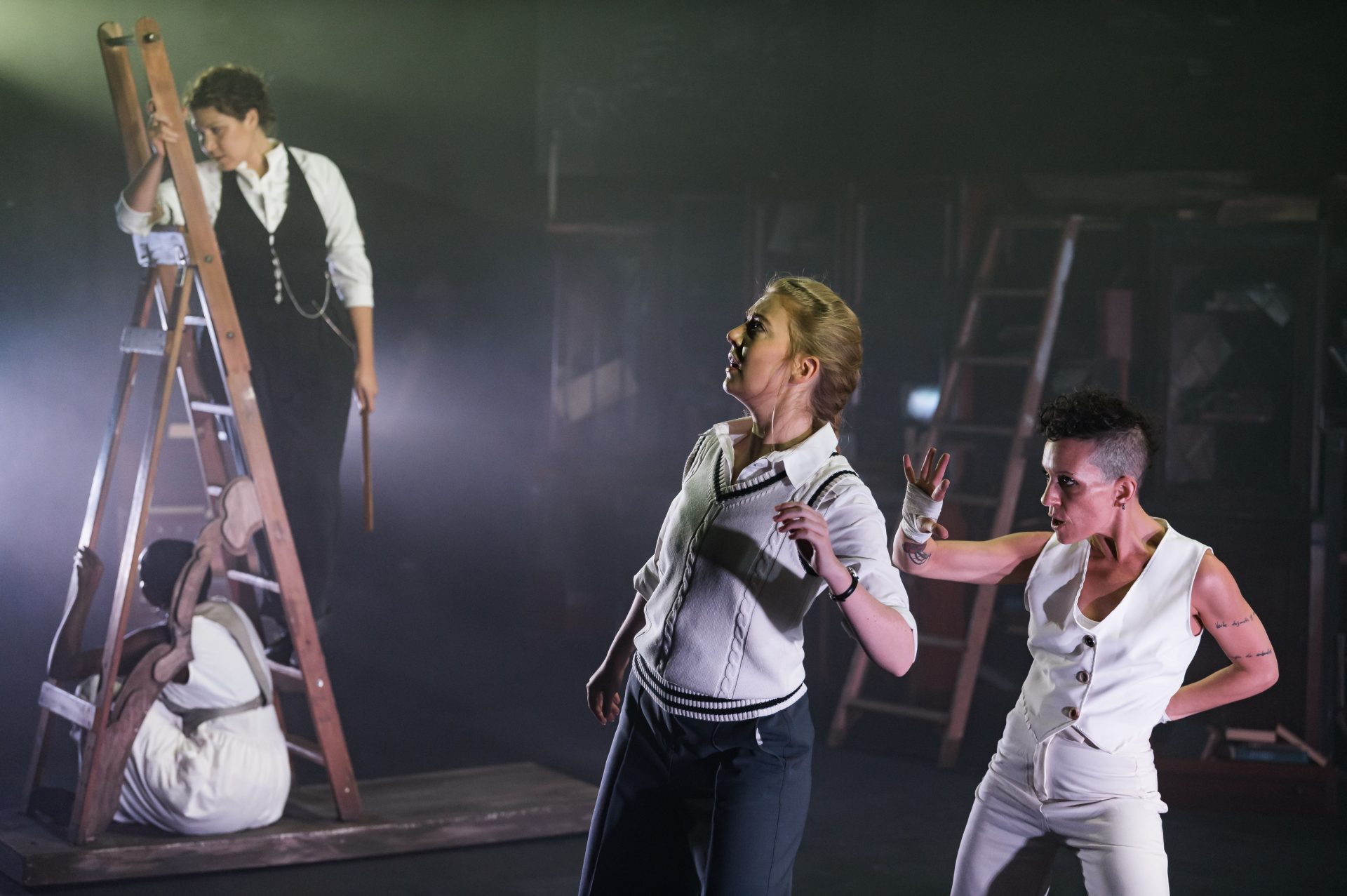Timed to coincide with COP26, Tron Theatre Company’s production of Shakespeare’s stormy final play, The Tempest, relies on recycled stock for all of its costumes, props, and set design. The cast is also comprised solely of female-identifying actors making for an interesting interpretation of the play’s central themes of power and manipulation. Ordinarily, there would only be one female character onstage (Miranda), yet here the play with gender doesn’t draw attention to itself or stand out as virtue-signalling.
The staging is unusual considering the island setting of The Tempest. Two huge stained glass windows, shelves full of books, ladders, and antique furniture create the impression of a vast, internal space. However, it’s still impressive and atmospheric, allowing for plenty of physical dynamics as the actors interact with their surroundings throughout. Even the wings are used as the actors meander in slow motion where the audience can still see them, creating the illusion of a ‘split screen’ onstage. As is typical of Shakespeare, there is also magic here, and simple lighting changes effectively channel the supernatural elements of the play – supported, of course, by the skill of the actors.
Nicole Cooper is authoritative and commanding as Prospero, while Itxaso Moreno is dextrous, agile, and spritely as spirit Ariel. There are also comedic highlights in Trinculo and Stephano’s scenes (played by Taylor Goodwin and Ariana Ferris McLean respectively), which bring levity and give the pace a spring. Liz Kettle is also especially captivating as the dejected outcast Caliban and crystalizes the damage of colonisation at the play’s core. In fact, this is highlighted in the play’s final scene which alters The Tempest‘s traditional fourth-wall break. Instead of Prospero addressing the audience, his final lines are delivered to the abandoned Ariel before he and Caliban are then left behind onstage, used and forgotten. A minor flaw which distracts at points is that some language is lost due to problems with enunciation and one or two softly spoken performers.
The Tempest is perhaps one of Shakespeare’s more accessible plays with its fractious backstory, magic, fantastical setting, and array of unique characters. This production revels in each of these elements and the cast’s excellent key players make for an engaging and powerful performance.
